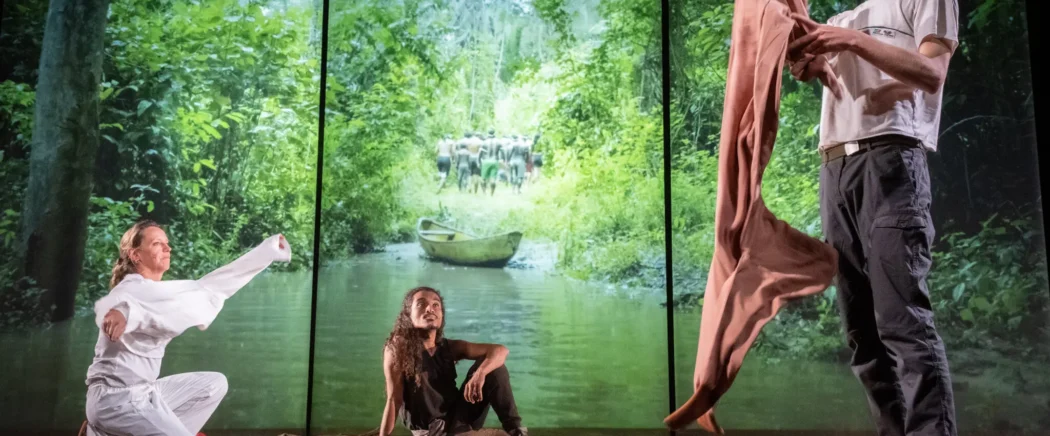Antigone is our contemporary. The dilemmas she faces are no less pressing today than they were in the fifth century BC. In the aftermath of civil war, can room be made to honor the dead brothers who put you and your neighbors in danger? How to respond when a state demands obeidence at the expense of familial bonds and sacred duties? Not surprisingly, modern theatre makers have used this tragic icon to explore a host of contemporary conflicts, from the experiences of Syrians displaced by years of civil war (Mohammad Al-Attar and Omar Abu Saada 2015), to conflict and reconciliation in Northern Ireland (Owen McCafferty 2008), to regional autonomy in Manipur India (Nongthombam Premchand 2004). The list of directors and playwrights who have adapted Antigone to contemporary events is too long to summarize here. Suffice it to say, it is apparently easy to see in ancient violence a mirror to a modern world experiencing the greatest number of armed conflicts and displaced people since World War II.
However, if Antigone feels distressingly familiar, it is not simply because she lives in a violent world beset with tyrants. She feels familiar because as she struggles against a tyrant, she manifests the worst flaws of modern zealots. She is incapable of self-questioning, incapable of hearing let alone empathizing when her sister presents arguments for respecting the law. Nor does she have any sympathy for her sister’s trepidation. Antigone is driven to a self-destructive act in part because she is certain that she will reunite with family members in an afterlife. It is a familiar idea for those who grew up Christian or Muslim, and an idea that accounts for any number of atrocities, but it was not an idea germane to an Athenian audience. Her adversary, Creon, is no less flawed. He sees conspiracies against his authority and the state everywhere. When he hears news he dislikes, he assumes someone has been bribed. When he is personally anxious, he assumes the nation is in danger. The play is relevant today, not simply because it addresses violence and tyranny. It is relevant because it depicts violence and tyranny as manifestations of individual and communal pathologies.
Edward Ziter is Professor of theatre history at NYU Tisch School of the Arts. He is the author of The Orient on the Victorian Stage and Political Performance in Syria: From the Six-Day War to the Syrian Uprising.
